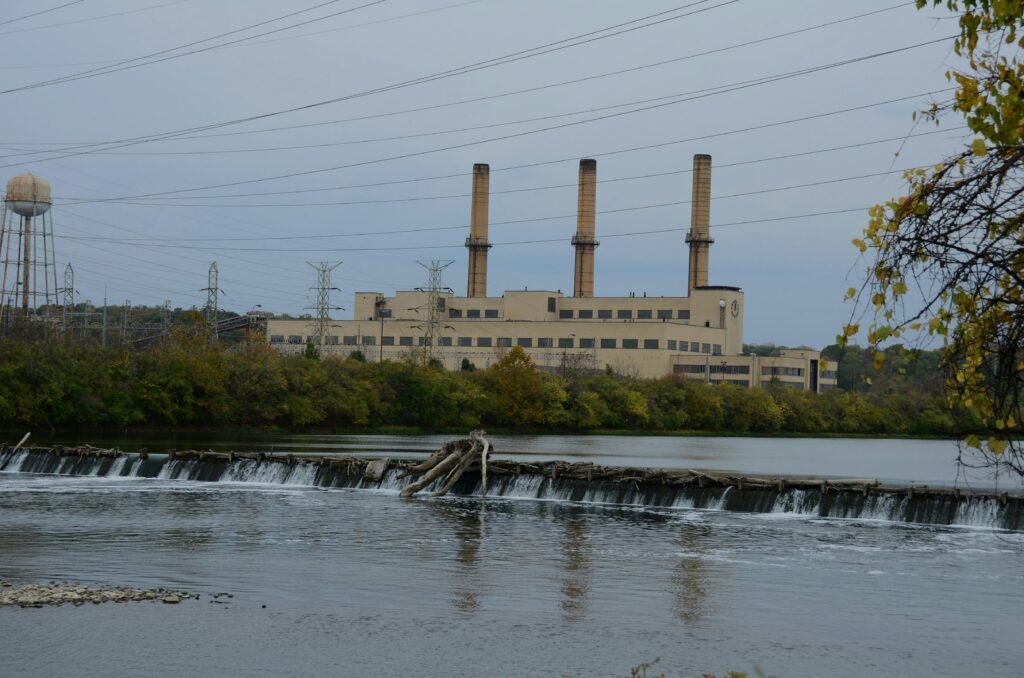The EPA Betrayal: Repealing Protections Against Pollution

Introduction to the EPA’s Role and Recent Changes
The Environmental Protection Agency (EPA) was established with the fundamental mission of safeguarding public health and the environment. The agency plays a crucial role in enforcing regulations that protect air quality, water resources, and ecosystems, ensuring that communities are shielded from harmful pollutants. At the core of the EPA’s responsibilities is the regulation of emissions from various sources, including power plants, which are significant contributors to air pollution and climate change. The adherence to legislation aimed at controlling these emissions is instrumental in promoting a healthier environment and mitigating the adverse effects of global warming.
Recently, the Trump administration initiated a series of actions that rolled back key regulations designed to limit emissions from power plants. These regulatory changes not only undermine the progress made over the years in reducing air pollution but also threaten to exacerbate existing health and environmental issues. The revisions to these protections signify a departure from the EPA’s commitment to its mission, raising concerns about the potential deterioration of air quality and the impact on public health.
One of the most notable shifts involved the weakening of the Clean Power Plan, which was designed to curb carbon dioxide emissions from power plants. By repealing this plan, the administration effectively removed a critical tool for addressing climate change and reducing air pollution. The implications of this decision are profound, particularly for communities already burdened by poor air quality, as the rollback of these protections is anticipated to lead to increased respiratory illnesses, cardiovascular disease, and other health problems associated with pollution.
Impact of Air Toxins and Emission Limits on Public Health
The health ramifications associated with hazardous air pollutants, notably those emitted from power plants, are profound and far-reaching. Substances like mercury, a potent neurotoxin, pose serious health risks, especially for vulnerable populations such as children and pregnant women. Exposure to these toxic emissions can lead to a variety of serious health issues, including neurological disorders, respiratory diseases, and cardiovascular complications.
Power plants are significant contributors to the emission of these harmful pollutants, which can infiltrate the air we breathe, leading to increased rates of asthma, heart attacks, and strokes. Studies have illustrated a direct correlation between high levels of air pollution and escalating incidences of these health crises. Communities situated in close proximity to power plants are often the most affected, reflecting a startling inequity in public health. The presence of detrimental air toxins is not merely an environmental concern; it poses an urgent public health crisis, necessitating immediate and rigorous regulatory action.
Maintaining strict emission limits is crucial for safeguarding public health. Limiting the release of pollutants such as sulfur dioxide and particulate matter not only can mitigate chronic health conditions but also potentially reduce premature deaths attributed to air quality. Research consistently demonstrates that stringent environmental regulations lead to measurable improvements in community health outcomes. For instance, improved air quality is linked to lower hospitalization rates for respiratory issues and a decline in cardiovascular events.
The implications of repealing protections against power plant pollution extend far beyond environmental degradation; they represent a tangible threat to public health. Communities already burdened with health disparities may find their predicaments exacerbated without stringent emission controls. Therefore, it is imperative that policymakers recognize the critical importance of maintaining strict regulations on air pollutants to safeguard public health and promote wellbeing for all citizens.
The Climate Crisis: Consequences of Scrapping Carbon Emission Limits
The decision to eliminate carbon dioxide emission limits presents significant risks that extend far beyond immediate pollution concerns. The broader implications for the climate crisis are stark; increased carbon emissions are among the chief contributors to global warming, a phenomenon that has been steadily escalating over the past decades. Scientific consensus suggests that each increment of additional carbon pollution accelerates climate change, which manifests in more severe weather events worldwide.
As a result, regions across the globe are experiencing heightened occurrences of extreme heatwaves, hurricanes, and flooding. Heatwaves, intensified by greenhouse gas emissions, not only pose direct health risks but also strain energy resources and public infrastructure. Furthermore, the frequency and intensity of hurricanes have been exacerbated by warmer ocean temperatures, leading to devastating economic and human losses. Flooding events have become more prevalent due to intensified rainfall patterns, which severely disrupt agricultural activities and threaten food security.
Additionally, the impact of scrapping emission limits extends beyond weather patterns. Ecosystems are facing increased stress, leading to biodiversity loss and the destabilization of habitats. Species that are particularly vulnerable to climate change, such as certain amphibians and polar bears, stand on the brink of extinction as their environments become increasingly inhospitable. The disruption of ecosystems triggers a cascading effect, harming not only wildlife but also the livelihoods of communities that depend on natural resources for their survival.
Furthermore, the implications of these environmental changes are not limited to the present. Future generations will grapple with the consequences of today’s decisions, facing potential food shortages, health crises, and increased migration due to inhospitable living conditions. The path towards a sustainable future is becoming perilous, and the repercussions of abandoning carbon emission limits are deeply concerning. Ensuring robust protections against power plant pollution is essential not only for our climate but also for the well-being of countless generations to come.
Corruption and Industry Influence: A Call to Action
The recent repeal of protections against power plant pollution has raised significant concerns regarding the underlying corruption that facilitates such regulatory rollbacks. Central to this issue is the troubling relationship between government officials, particularly within the Trump administration, and the fossil fuel industry. This connection, epitomized by EPA head Lee Zeldin’s known ties to corporate interests, illustrates a broader trend of regulatory capture, where industry priorities overshadow public health and environmental protections.
The influence of monetary contributions from fossil fuel companies on government policy cannot be understated. These relationships create conflicts of interest that effectively undermine the mission of regulatory agencies, which are meant to safeguard natural resources and promote community health. The rollback of essential regulations demonstrates a paradigm shift prioritizing immediate economic gains over long-term environmental sustainability. As citizens, it is imperative to recognize that the consequences of such actions extend beyond regulatory frameworks; they impact air quality, public health, and the broader ecosystem.
To combat this growing trend, increased public awareness and activism are essential. Citizens must not only inform themselves about the connections between governmental decisions and corporate lobbying but also actively resist these influences. Engagement in local governance, participating in advocacy groups, and supporting regulatory reforms are critical steps that can lead to meaningful change. By leveraging collective power, the public can hold elected officials accountable for actions that prioritize corporate profit over the welfare of communities and natural resources.
As individuals, we can also amplify our voices through social media, community meetings, and campaigns that highlight the importance of environmental protection. Mobilizing grassroots movements can result in tangible shifts in policy, counteracting the effects of corporate lobbying. In conclusion, fostering a culture of accountability and activism is vital to ensuring that public health and environmental considerations take precedence in future regulatory decisions.




